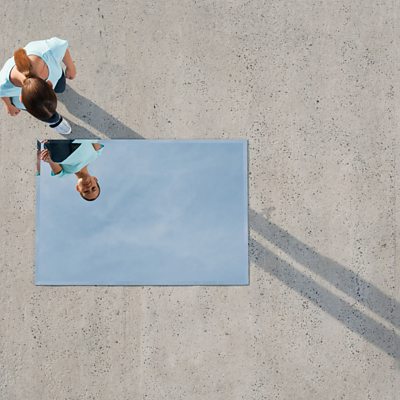Episode details

Available for over a year
Like many immigrant children growing up in predominantly white communities, I was never happy with the way I looked. When I discovered aged five that as a girl of Nigerian origin, I would never look like the Disney princesses I had come to associate with the highest forms of beauty, I was bitterly disappointed. I couldn’t see myself reflected in my classmates, teachers; those I saw on TV screens, or read about in books. According to a report from the Centre for Literacy in Primary Education, just one per cent of the children’s books published in the UK last year had black and minority ethnic main characters. This stark statistic is what led Knights Of – an independent publisher – to set up a pop-up shop in the bustling heart of Brixton, south London, selling only books with BAME lead characters. They sold out of their stock in just two days as people were so desperate to see themselves represented in books that they flocked to the store. There is something within each of us that wants to be seen; to be loved and to be valued. As I’ve grown older, I’ve realised the desire to be associated with the beautiful is not just a hope of immigrant girls. The quest for the body beautiful is pervasive in our society. Women – and increasingly men – long to be judged aesthetically pleasing. As the year ends, we think about New Year’s Resolutions. It’s likely that a large proportion of those resolutions will focus on getting a step closer to the arbitrary beauty standard to which each of us feels pressure to conform – start a diet (again), join a gym where we pummel our unruly bodies into submission, or stick to that night-time skincare routine. Though we all want to be beautiful, we also know that we will never be completely satisfied with what we see staring back at us in the mirror – the beauty, fashion and advertising industries depend on us feeling inadequate. These industries are predicated on the idea that we believe our bodies are in some way bad; and that each of us – no matter the colour of our skin - has a hole that we are trying to fill. They seem to offer us redemption. But this is not how it’s supposed to be. Those feelings of inadequacy and shame about our bodies – and those niggling doubts about our physical, moral and spiritual imperfections were not there at the very beginning of Genesis when God looked at what he had made and declared that all of it was “good” – saggy boobs and all. For me, the Christian story offers hope despite the fact that we are imperfect in all sorts of different ways. How transformative it would be for each of us to choose this hope instead of shame, and whether or not we believe we were made in the image of God, to see ourselves as already beautiful.
Programme Website